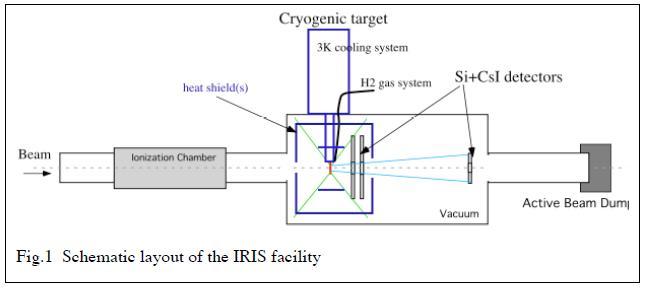The ISAC Charged Particle Spectroscopy Station (IRIS) is a proposed experimental facility designed to study charged particles at ISAC-II at TRIUMF. IRIS has been awarded funding from provincial, national, and international sources; the Canada Foundation for Innovation (CFI), the Nova Scotia Research and Innovation Trust (NSRIT), and a contribution from Research Center of Nuclear Physics, Japan. Project Leader and Professor at Saint Mary's University, Rituparna Kanungo asserted, "If commissioned successfully in a timely manner, IRIS can spearhead our understanding of the structure of very neutron-rich nuclear isotopes". Other groups involved in the project come from McMaster, Simon Fraser, and Guelph along with Osaka University in Japan.
"The funding support by CFI and NSRIT was crucial for us to realize this project. We are extremely thankful to the Canadian research funding agencies for the timely funding because our research goals with the project are extremely competitive with other facilities around the world," she added. IRIS consists of a low-pressure ion chamber, a cryogenic, solid-hydrogen target, and a ΔE-E detector telescope consisting of silicon detectors and cesium-iodide crystals. The ionization chamber will allow identification of beam species on an event-by-event basis. The solid target is quite novel and will enhance the reaction yields by several factors.
IRIS is an integral component of future developments at TRIUMF and is intimately related to the ISAC science program as outlined in TRIUMF's 5-Year Plan. "We hope therefore that we will be able to complete the project in a timely manner to accomplish some of the scientific goals that are discussed in the Five-Year Plan" Kanungo expressed.
 |
IRIS will be used to study reactions with the rare isotopes produced at ISAC. Such reaction studies allow scientists to view the evolution of the internal organization of nucleons inside the exotic isotopes and their mutual interaction as we move from stable to exotic isotopes. Kanungo explained, "To solve the puzzle on the origin of the heavy elements that we find on earth today, it is important to understand the properties of these rare exotic isotopes, because it is through cascade of reactions and decays of these isotopes that most of what we see around us came into being."
The CFI and NSRIT funds were at 100% of what had been requested. CFI supports about $535,000 and NSRIT supports $218,000.
TRIUMF looks forward to working with the IRIS international team and implementing this great project!
About NSRIT
The Nova Scotia Research and Innovation Trust (NSRIT) is a fund which was established in 2001 through a Trust Agreement between the Province and Royal Trust Corporation (RTC), to support Nova Scotia research by providing funds for research infrastructure. NSRIT is managed by the Beneficiaries Committee, consisting of representatives from the various universities and colleges as well as three non-voting representatives from the Province (Office of Economic Development, Department of Education, and Department of Finance). The Beneficiaries Committee oversees the Trust and awards funding to eligible projects.
Funding Recipients are researchers who work at one of the universities or colleges that comprise the Beneficiaries Committee. NSRIT is administered by the Council of Nova Scotia University Presidents (CONSUP), on behalf of the Office of Economic Development (OED).
-- Melissa M. Baluk, Communications Assistant
